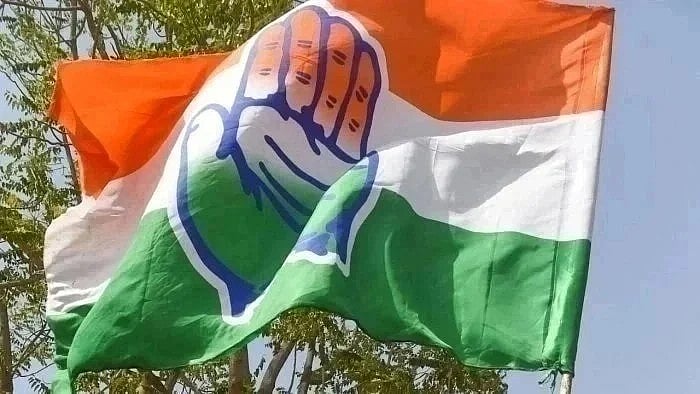
The Congress flag.
Credit: PTI File Photo
The Congress party is doing a disservice to itself by attributing the abysmal performance of the party and the larger Mahagathbandhan in Bihar to “vote chori” and an alleged collusion between the Election Commission of India (ECI) and the BJP.
The Special Intensive Revision (SIR) undertaken by the EC just ahead of the election was intended to alter the electoral rolls, but arguments that trace the Mahagathbandhan’s rout to SIR need stronger evidence. While the Voter Adhikar Yatra of Congress leader Rahul Gandhi and RJD leader Tejashwi Yadav did evoke some response, the coalition failed to make the concerns a poll plank that could influence voting behaviour.
It is to be noted that the alliance did not fare well even in areas where the Yatra was taken. The EC is answerable for the manner in which it conducted SIR, and, perhaps, even for its objectives, but it would be a stretch to link its flawed procedures to the NDA’s landslide win.
The Commission’s conduct was partisan before and during the poll campaign. It has not answered Gandhi’s questions about discrepancies in the voters’ lists in Karnataka and Haryana. Its treatment of the Opposition parties, especially the Congress, has been marked with hostility.
Complaints against the ruling coalition about the violation of the model code of conduct were overlooked. Critically, the Commission refused to halt the government’s money transfer scheme for women, launched just before the announcement of the election schedule, which continued even during the campaign. This bonanza did have an impact on the election. But the EC’s biased interventions were not the sole reason for the Mahagathbandhan’s poll debacle.
Instead of looking for scapegoats and excuses, Congress should introspect and identify the real reasons for this disastrous result. It did not invoke issues that appealed to the people, and did not have the cadre strength on the ground to convey the party’s vision and roadmap to the voters. It did not strategise and gel well with its allies, and failed to project a strong local leadership that the voter could identify with.
There was a discernible lack of ideas and intent, which proved costly against a formidable incumbent that leveraged its strengths – a united top brass, smart poll messaging, and the right social representation. If Congress wants to learn any lessons from Bihar, it should ask hard questions on these shortcomings and seek honest answers. This is also the time for the party to ask its top leadership about the reasons for the repeated electoral setbacks.
